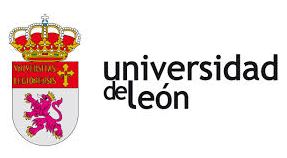A role for ActA in epithelial cell invasion by Listeria monocytogenes
Cellular Microbiology publish this investigation article
December 20th, 2001
We assessed the role of the actin-polymerizing protein, ActA, in host cell invasion by Listeria monocytogenes. An in frame DeltaactA mutant was constructed in a hyperinvasive strain of prfA* genotype, in which all genes of the PrfA-dependent virulence regulon, including actA, are highly expressed in vitro. Loss of ActA production in prfA* bacteria reduced entry into Caco-2, HeLa, MDCK and Vero epithelial cells to basal levels. Reintroduction of actA into the DeltaactA prfA* mutant fully restored invasiveness, demonstrating that ActA is involved in epithelial cell invasion. ActA did not contribute to internalization by COS-1 fibroblasts and Hepa 1-6 hepatocytes. Expression of actA in Listeria innocua was sufficient to promote entry of this non-invasive species into epithelial cell lines, but not into COS-1 and Hepa 1-6 cells, indicating that ActA directs an internalization pathway specific for epithelial cells. Scanning electron microscopy of infected Caco-2 human enterocytes suggested that this pathway involves microvilli. prfA* bacteria, but not wild-type bacteria (which express PrfA-dependent genes very weakly in vitro) or prfA* DeltaactA bacteria, efficiently invaded differentiated Caco-2 cells via their apical surface. Microvilli played an active role in the phagocytosis of the prfA* strain, and actA was required for their remodelling into pseudopods mediating bacterial uptake. Thus, ActA appears to be a multifunctional virulence factor involved in two important aspects of Listeria pathogenesis: actin-based motility and host cell tropism and invasion
Suarez M., Gonzalez-Zorn B., Vega Y., Chico I. and Vazquez-Boland JA.
 | Departamento de Sanidad Animal. Facultad de Veterinaria. Universidad Complutense (UCM). |
 | Servicio de Zoonosis de Transmisión Alimentaria y Resistencia a Antimicrobianos (ZTA). Centro de Vigilancia Sanitaria Veterinaria (VISAVET). Universidad Complutense (UCM). |
 | Grupo de Patogénesis Molecular Bacteriana. Facultad de Veterinaria. Universidad Complutense (UCM). |
 | Grupo de Patogénesis Molecular Bacteriana. Facultad de Veterinaria. Universidad de León. |
